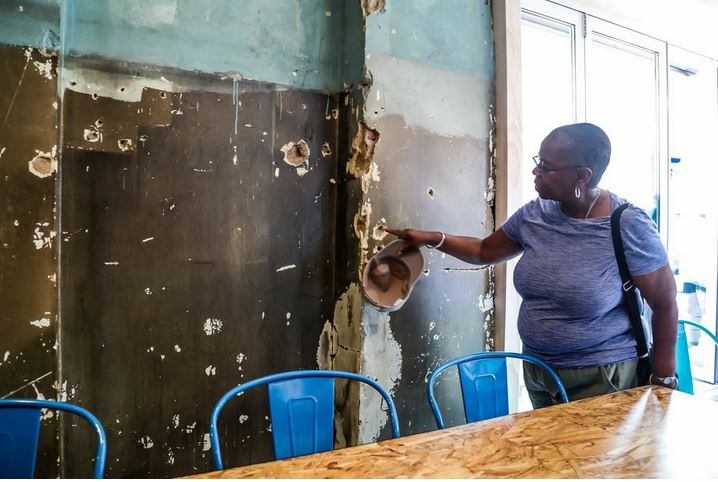How Not to Apologize
/ The owner of a bar in Crown Heights, Brooklyn, has faced her critics but didn't handle the apology well. Former corporate tax attorney Becca Brennan wrote a press release encouraging people to visit her new bar and photograph the wall of bullet holes.
The owner of a bar in Crown Heights, Brooklyn, has faced her critics but didn't handle the apology well. Former corporate tax attorney Becca Brennan wrote a press release encouraging people to visit her new bar and photograph the wall of bullet holes.
It was a bad joke: the holes weren't from bullets. Brennan played on previous violence in a gentrifying neighborhood. The NY Eater summarizes the issue:
Nostrand Avenue between Eastern Parkway and Atlantic is quickly gentrifying, and increasingly, bars and restaurants targeting young and primarily white new residents have opened. Summerhill may be the first business to capitalize on historic violence and poverty in Crown Heights as a point of the decor - making it an easy lightning rod for existing tensions.
Neighbors took offense, and some considered the promotion racist. Brennan issued an apology:
"I truly never meant it in that way, but I recognize that it was insensitive. I was excited to keep the wall as a shout out to the different businesses that occupied the space before us, but my intention was misinterpreted, and I'm sorry for that."
A month later, a town hall meeting was supposed to ease tensions but didn't. In response to criticism, Brennan said, "I'm sorry I have a sense of humor," and "I'm very sorry you were offended." These are classic mistakes in apology.
From her perspective, Brennan can't say anything right. She told reporters, "I mean, you see me try to talk, and nothing I say will ever be good enough." At the same time, she refuses to cover the damaged wall.
Discussion:
- What makes a good apology, and how did Brennan's fall short?
- What would you suggest for Brennan to demonstrate vulnerability?
- Should she cover the damaged wall or stick to her plan, as she says, to "keep the integrity of an 100-year-old building"?
- At this point, how, if at all, can she improve relations with neighbors?


